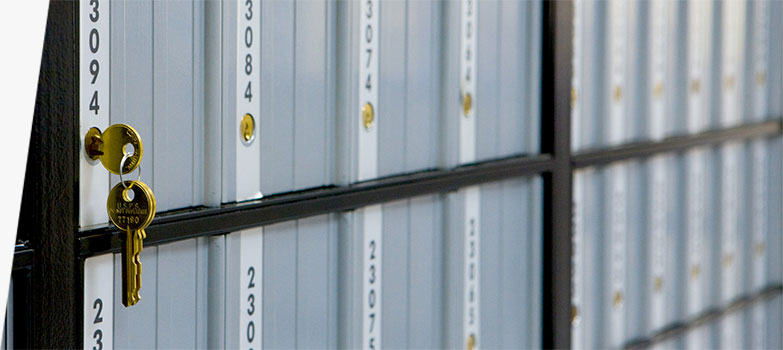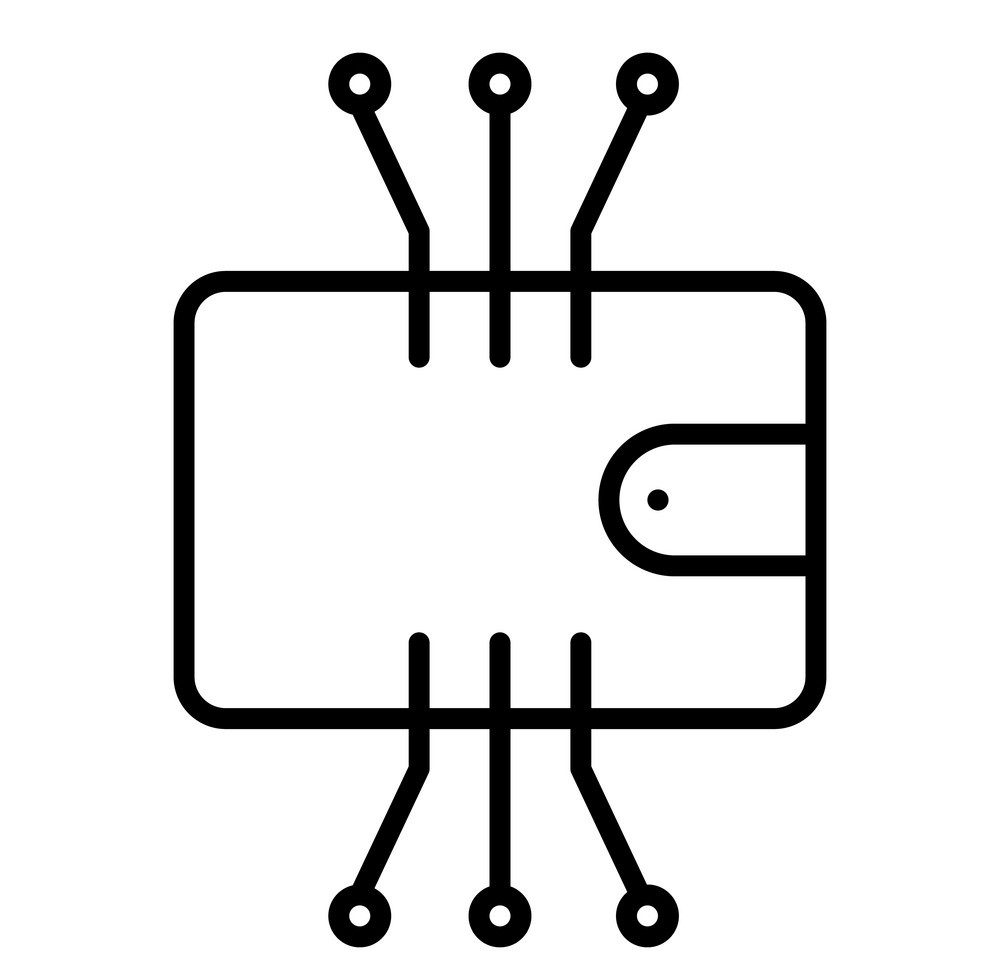WHAT’S IN YOUR CRYPTO WALLET?
Get out of the way Capital One, new kids are on the blockchain

The world of cryptocurrency has many storage options and wallets available. In this article, we discuss crypto storage in simple terms and look at some of our favorite wallet solutions.
Consumers have multiple platform choices such as: desktop, mobile, browser, hardware, or even an old fashioned paper treasure map…
(For purposes of the article, we assume our consumer is not interested in running their own node but want to reference that option. Running a node on a network provides a secure wallet option on many protocols, similar to running a bitcoin node referenced here. Other protocols have different ways to participate in network consensus or receive a network wallet address.)
https://bitcoin.org/en/full-node

What is a blockchain?
A blockchain is like a row of safe deposit boxes on the internet…

Each box has a unique address and requires a unique key to access it.
Think of a crypto wallet as place to hold addresses and keys, NOT the crypto itself.
A public key reveals the location on the internet and a private key opens up the box. Crypto can be moved from location to location, but wallets do not actually contain any crypto.
Basic understanding of keys and wallets will help us make informed decisions as to how we store and move our assets.
What are keys?

Many cryptocurrencies have similar basic principles with regards to keys and addresses:
A public key: similar to a user name, it is a public address
A private key: similar to a private password or pin
“A cryptographic key is a string of bits used by a cryptographic algorithm to transform plain text into cipher text or vice versa. This key remains private and ensures secure communication.”
– Techopedia
Chances are we’ve already seen some keys…
they can look like this:
1a6g5sha2562d5shah256udg4shah2568j4g56w8656sha256
Or
they can look like this:
public.key
Many wallets also use “seed phrases“, which are lists of words that are linked up to private keys. Seed phrases can also be used to back up and restore wallets.
The keys are the most important part of utilizing cryptocurrency

A variety of key storage options are available to digital age consumers. They can be kept in wallets, stored online/offline, in hard drives, etc.
Anyone who has the private keys can access the crypto. Understanding the mechanics of the system or protocol being used is critical to understanding the associated risks.
A paper wallet can be something as simple as an address and passcode written down on a piece of paper. (although secure, we DO NOT recommend novice users utilizing paper wallets)

Basic Wallet Types:
- –Hot wallets are wallets that are connected to the internet.
(online wallets, exchange wallets, keys stored online)
- –Cold storage are wallets that ARE NOT connected to the internet.
(Ledger/Trezor hardware wallets, paper wallets, keys are stored offline)
How do we choose?
We recommend trying out different wallets to see the different features, but ultimately the wallet used must fit the needs of the consumer.
Some wallets only support certain cryptocurrencies or protocols, so it’s important to understand the features of the wallet to set clear expectations.
The phrase that pays, or more importantly protects:
“Not your keys. not your crypto”
the Staxx crypto gospel

What does that mean?
It means if we hold crypto on an exchange or with a custodian that doesn’t have cold storage or private key options, we are not in control of the crypto. The access is controlled by the keys.
In this scenario, the consumer is at the mercy of the custodian and must place trust in the third party… not only to keep our crypto safe, but to provide access to it when desired. If their website is down, we are unable to access our crypto.
While convenient to the consumer, this relationship also adds a layer of vulnerability. A centralized third party has systems that are subject to security breaches, and the consumer can be “locked out” or frozen from their accounts.

Crypto consumers have access to an infinite amount of wallets and keys. That makes sending crypto to various locations very easy and has advantages.
For example: All bitcoin transactions exist on a public blockchain, meaning all public keys are visible. Limiting transaction activity on certain wallet addresses can increase security by not attracting attention to the wallet.
When referring to current bitcoin technology, anonymity is only as good as the security masking a person to his or her public wallet address. There are many ways to add additional layers of anonymity.
Please visit our Cypherpunk and Educational resources or contact us for additional information.
The Cream of Crypto wallets
Nothing is safer than a paper wallet buried in a location marked with an X on a treasure map, but if we want more high tech options… lets take a look at some of our favorite modern storage solutions to keep those keys safe! Arrrrghhhhhhh


Mobile–
Mobile solutions manage keys by installing software locally on the device
Enjin Wallet:
“Impenetrable, feature-packed, and convenient—built for traders, gamers, and developers.”
– Supporting Bitcoin (BTC), Ethereum (ETH), Binance Coin (BNB), Litecoin (LTC), ERC-20, ERC-721, and ERC-1155 tokens.
– Full Ethereum decentralized exchange (DEX) capabilities with no KYC
– Links to millions of NFT items and collectibles from ENJIN games
– WEB 2.0 access with DAP browser
– Private keys/seed phrase
– Seamless Enjin-X marketplace transactions

https://enjin.io/software/wallet
Samourai Wallet
“A bitcoin wallet for the streets – A modern bitcoin wallet hand forged to keep your transactions private your identity masked and your funds secured.”
– Supporting BITCOIN ONLY
– Built in features allow users more anonymity
– Options for running bitcoin nodes from a mobile device
– Private keys

Trust Wallet
“The most trusted & secure crypto wallet. Buy, store, exchange & earn crypto. Join 5 million+ people using Trust Wallet. More than 160k+ assets supported. Store all your coins and tokens in a single, secure mobile wallet.”
– Supporting most major cryptocurrencies including Bitcoin (BTC), Ethereum (ETH), Binance Coin (BNB), Litecoin (LTC), ERC20 / ERC223 / ERC721 based tokens
– Access cold storage wallet – Trezor, Ledger, KeepKey etc. – with Trust Wallet’s “watch” function without exposing your private key in a “view-only” mode while keeping keys in a safe and secure location.
– Bitcoin and crypto purchases available
– Fully automated exchange features built in
– Private Keys
– NFT storage capabilities

Browser-
Browser wallets use cloud storage, website URLs, or have browser plug-ins to manage and store keys
Metamask
“Available as a browser extension and as a mobile app, MetaMask equips you with a key vault, secure login, token wallet, and token exchange—everything you need to manage your digital assets.”
– Supporting Ethereum and any ETH based tokens (erc20, 721, and more)
– Utilizes private keys
– Plug-in is installed in to web browser for added convenience
– Automatically interacts with web based objects in games and interfaces

WAX – All access Cloud Wallet
WAX all access wallet is a new wallet solution for the WAX blockchain, EOS protocol featuring cloud access.
– Supporting WAX tokens and NFTs
– Simple efficient NFT purchases, trading, and collecting tools and DAPS
– Private key options are available but not required
– Users are granted a public key address, login information is username/password based with additional security like 2FA available
– Familiar name brands and collections such as Topps Digital, Garbage Pail Kids, Atari as well as new popular projects such as Bitcoin Origins

My Ether Wallet
My Ether Wallet is a web browser based storage solution for the Ethereum blockchain and associated tokens. MEW also allows interaction with Ethereum smart contracts.
– Supporting Ethereum and all ERC-20 tokens
– Web browser access convenience
– Private keys
– No software install required, mobile app option is available

https://www.myetherwallet.com/
Tronlink
Tronlink is an easy to use wallet solution for the TRON network only, with both browser plug-in and mobile software wallet options available.
– Supporting all TRON and TRX tokens, DApps, DeFi and functions including SUN, JustSwap and JUST
– Utilizes private keys
– Plug-in is installed in to web browser for added convenience
– Automatically interact with web based objects in games and interfaces

Cold Storage-
Cold storage products offer solutions to keep private keys offline and not connected to the internet. This feature can help keep wallets anonymous and protected. Keys are managed via removeable hardware devices and software to connect to crypto networks only when requested.
Ledger
Ledger offers several offline hardware wallet storage solutions and included proprietary asset management software. Although Ledger has been in the news about a user information data breach, their products remain secure key storage solutions in our opinion.
– Supporting most popular cryptocurrencies including: BTC, ETH, LTC, ZEC, click here for full list
– Private keys are stored in a offline digital hardware device
– Devices are small, concealable, and portable
– Ledger Live software is user friendly
– Only connect to network when user desires

We hope that this article provided helpful information on some current cryptocurrency wallets and our options as digital consumers when it comes to storing private keys.
Please keep the feedback coming, as we prepare additional content we want to hear from our community! Follow us for more content and updates from markets, the metaverse, and beyond!
–Goldmann Staxx
